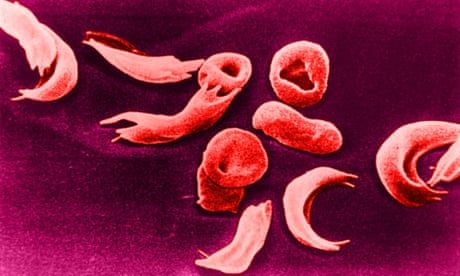
Dating, holidays, work: this genetic disease changes everything. Gene therapy could be a lifeline, if it’s accessible to all
- Tobi Oredein is a journalist, public speaker and the founder and CEO of Black Ballad
When I was pregnant for the first time in 2020, I remember saying to my husband: “This country does not give a toss about the health of black people.” Why? As a pregnant woman and a sickle cell carrier, I was shocked to learn how little information is shared about this disease. Logging into pregnancy apps or reading NHS leaflets, you find an endless list of illnesses and conditions – genetic and non-genetic – that may affect your baby. Yet sickle cell was barely mentioned, despite it being the fastest-growing genetic disease in the UK.
During the pandemic, we were constantly told that those with underlying health conditions were more at risk. But sickle cell was rarely, if ever, acknowledged as one of those conditions. Sickle cell disease – which predominantly affects black people – causes red blood cells to become a sickle shape, making it difficult for them to pass through blood vessels. This leads to excruciating pain episodes, known as sickle cell crises, which can last hours, days or even weeks.
Tobi Oredein is a journalist, public speaker and the founder and CEO of Black Ballad
Do you have an opinion on the issues raised in this article? If you would like to submit a response of up to 300 words by email to be considered for publication in our letters section, please click here.
Continue reading...